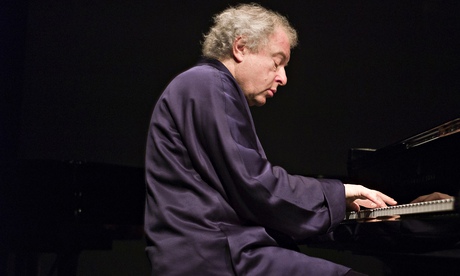Twenty musicians, mostly standing, makes for a crowded Wigmore platform. But in this programme featuring, in addition to the Basel Chamber Orchestra, Mark Padmore as vocal soloist, alongside horn player Olivier Darbellay, the hall's acoustic took this unusually large assembly in its stride.
In fact, the renowned Basel Chamber Orchestra, led on this occasion by Yuki Kasai, was shorn of its wind players for the first half's major work, Britten's Serenade for Tenor, Horn and Strings, which had its premiere at the Wigmore in 1943. Peter Pears was the tenor then, with Dennis Brain his fellow soloist, but Padmore and Darbellay had nothing to fear from comparisons with the recording by their illustrious predecessors. Padmore's lean yet forceful voice cut a swath through Britten's challenging writing, maintaining tension in the high-wire act of the creepy Dirge and applying an ethereal sensuousness to the uneasy insomnia of the final Keats sonnet. Darbellay brought in a valveless horn for the atmospheric opening Prologue, and approached his part with an astutely varied array of tone that matched well with Padmore's colour-range and Britten's virtuoso demands.
Padmore's other solo turn consisted of three of Purcell's devotional songs in arrangements by the contemporary Swiss composer Lukas Langlotz, which registered as fussy where Purcell is simple and direct, but the tenor voiced and phrased them impeccably.
In the second half, Darbellay took the solo spot alone in Mozart's Second Horn Concerto. Once again his technically adroit, tonally multi-coloured playing impressed, and the performance as a whole had plenty of spirit and bounce.
The Haydn symphony that followed – a rarity, No 52 in C minor – was not quite in the same league, the violent mannerisms of his so-called "storm and stress" period a little untidy around the edges.


